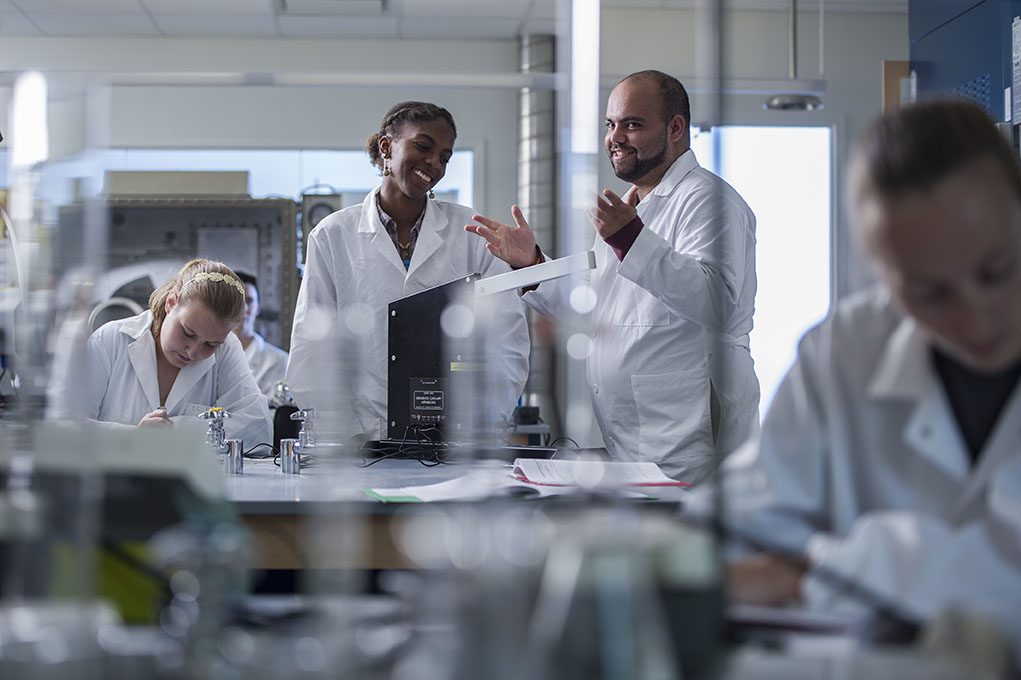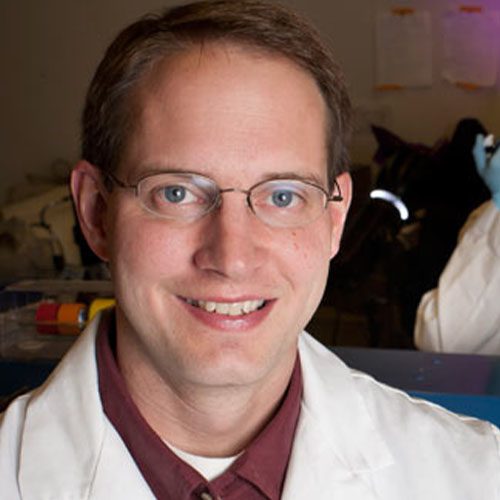Biochemistry
Earlham’s biochemistry program will prepare you for a career in medicine, research or biotechnology.
With combined studies in chemistry and biology, biochemistry is particularly well-suited to students who are planning to attend medical school or veterinary school, or who want to enter public health and other health science fields.
The biochemistry major provides students with a solid foundation in cell biology, molecular biology and chemistry with a strong emphasis on research and hands-on learning.

Start your adventure
Sign up for more information about Earlham College.
Top jobs for 2018-2022 graduates were in healthcare, higher education and research.
Forging solutions to world problems through collaborative research
The interdepartmental biochemistry program at Earlham College is accredited by The American Society for Biochemistry and Molecular Biology (ASBMB) and the biochemistry major lays the foundation for your career in science. In fact, Earlham ranks in the top 10 in the U.S. for the percentage of graduates who earn doctorates in the life sciences.
Off-campus study
Biochemistry majors are encouraged to study off campus. Our science faculty have led off-campus programs to Tanzania, England, France, Iceland and New Zealand.
Funded internships
Our students have access to funded internships at locations such as the Herman B. Wells Center for Pediatric Research and the Indiana University School of Medicine Stark Neuroscience Research Institute.

Our faculty
Our faculty have published in a wide variety of peer-reviewed journals and have been funded by both government and private institutions.
Frequently asked questions
The biochemistry program at Earlham provides you with exceptional preparation for seeking careers in medicine, research and biotechnology, just to name a few.
Recent biochemistry majors have interned at the Dartmouth-Hitchcock Medical Center, Wells Center for Pediatric Research, the University of Pennsylvania School of Medicine, and an equine hospital, among other places. The Earlham Center for Global Health also sponsors funded internships in the healthcare field each summer.
Biochemistry majors are strongly encouraged to plan for an off-campus study semester. Talk to your adviser early in your college career to plan for this. Science faculty frequently lead off-campus study semesters as well as summer research projects in places like Peru, the Dominican Republic and Iceland.
If you’re interested in working in healthcare, lab research or biotechnology, the biochemistry major will lay the groundwork for your future career. This is an interdisciplinary major that includes both biology and chemistry coursework, allowing you to gain a more complete understanding of how the two work together, particularly in human and animal health.
Graduates of the biochemistry program often go on to medical or veterinary school, or enter the public health or other health science fields.




